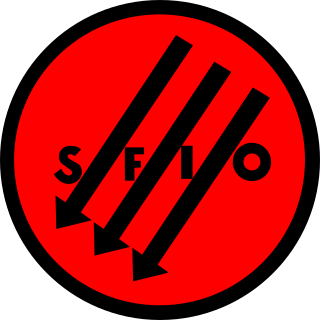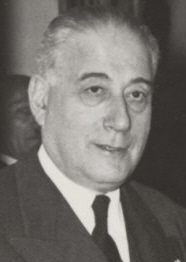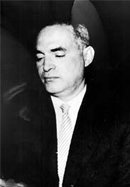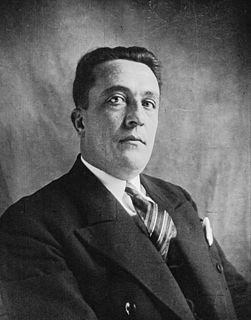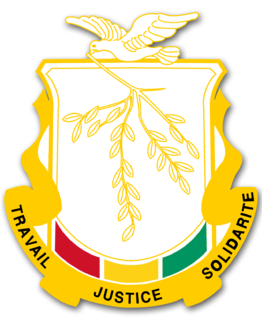 |
|---|
| This article is part of a series on the politics and government of Algeria |
Constitution |
Elections for a new Assembly were held in French colonial Algeria on 4 and 11 April 1948. The new 120-seat Assembly was to be elected by two colleges, each of which would vote for 60 seats; one college represented around 1,500,000 Europeans and Algerian Jews, plus a few thousand "évolué" Muslims, and the second of around 8,000,000 "indigenous" Muslims. Following the victory of the Movement for the Triumph of Democratic Liberties (MTLD) in the 1947 local elections, and with the MTLD and fellow nationalist UDMA set to win a majority in the Second College in the second round of voting, the authorities openly rigged the results in more than two-thirds of seats to ensure the victory of pro-government independents. the Assembly elections were manipulated by the authorities to ensure a favourable result. [1] The rigging was so brazen that the phrase "élection algérienne" became synonymous with rigged elections. [2]

Algeria, officially the People's Democratic Republic of Algeria, is a country in the Maghreb region of North Africa. The capital and most populous city is Algiers, located in the far north of the country on the Mediterranean coast. With an area of 2,381,741 square kilometres (919,595 sq mi), Algeria is the tenth-largest country in the world, and the largest in Africa. Algeria is bordered to the northeast by Tunisia, to the east by Libya, to the west by Morocco, to the southwest by the Western Saharan territory, Mauritania, and Mali, to the southeast by Niger, and to the north by the Mediterranean Sea. The country is a semi-presidential republic consisting of 48 provinces and 1,541 communes (counties). It has the highest Human development index of all non-island African countries.

Pied-Noir, plural Pieds-Noirs, is a term primarily referring to people of European, mostly ethnic French origin, who were born in Algeria during the period of French rule from 1830 to 1962. More broadly, it can refer to other foreign-origin persons, both Christian and Jewish, from all parts of the Mediterranean whose families had also migrated under French occupation in the 19th and 20th centuries to French Algeria, the French protectorate in Morocco, or the French protectorate of Tunisia, where many carried on living for several generations but fled or were expelled at the end of French rule in North Africa between 1956 and 1962. The term sometimes also includes the pre-existing North African Jews who had been living there prior to French colonization, whether Ladino-speaking Sephardi Jews who had arrived after the expulsion from Sepharad several centuries earlier in 1492 or even earlier Berber-speaking and/or Arabic-speaking Maghrebi Jews who had been residing there for over a thousand years, all of which were nonetheless awarded French citizenship by the 1870 Crémieux Decree whilst the rest of the native Muslim population was maintained in a second class status with the "Code de l'Indigénat". More specifically, the term Pied-Noir is used for those of European ancestry who "returned" to mainland France as soon as Algeria gained independence, or in the months following.
The History of the Jews in Algeria refers to the history of the Jewish community of Algeria, which dates to the 1st century CE. In the 15th century, many Spanish Jews emigrated to Algeria following expulsion from Spain and Portugal; among them were respected Jewish scholars, including Isaac ben Sheshet (Ribash) and Simeon ben Zemah Duran (Rashbatz).
